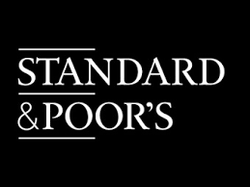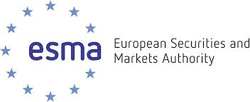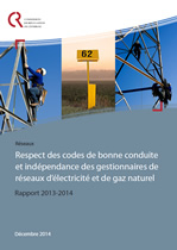The recent news

Jan. 16, 2015
Breaking news

One can only be amazed or even upset.
First, the agreement is not yet concluded. It would be in a month or two. How is it that we already know? Secondly, contracts, because the transaction is a contract listed by the Civil Code, are not intended to be public. How is it that we already know everything? The person who gave the information "was keen to remain anonymous." It would have suspected ......
Third, it is true that the regulation of rating agencies is a big issue. Special texts have been taken but academics think the right tools stay missing and that is probably the liability, general legal instrument, which is the most appropriate.
But the responsibility of commitment requires a trial, evidence, respect for the rights of defense, due processs, legality of offenses and penalties.. Here, $ 1 billion is paid by the company only to avoid that opens a lawsuit against it. The allegation is the rating agency would have underestimated the subprime risk.
But on one hand everyone says that the rating agency has actually done the facts allegued since payroll so that the file doesn't open. On the other hand, and from the perspective of regulating the information that would be out of the trial, a trial being a form of crisis, will not come out.
So this sort of industry fof "Deals of Justice", apart from the fact that some describe the phenomenon as a "racket", isn't a "decriminalization" of regulation for a "civilized regulation" through the transaction contract. On the contrary, this movement that is spreading constitutes an increased repression whic diminishes rights of defense for the operator and information for the sector.
One can only be amazed or even upset.
Jan. 14, 2015
Breaking news

Jan. 13, 2015
Breaking news

Jan. 12, 2015
Breaking news

France Stratégie is the French public body that advises the French Government on economic and social policies.
In January 2015, one of its researchers, Medhi Nemri, published an analytical note: "Demain, l'Internet des objets (Tomorrow, the Internet of Things)".
The release sees the Internet as a "essential facility" whose development capabilities will allow interaction between objects: the "Internet of Things". This world of "connected devices" would be a "tipping".
Indeed, the objects are connected in the industrial system (smart manufacturing) and the municipal utilities are beginning to organize themselves in the same way. The note stresses the importance of fostering an open platform for all public services. Private space is organized in the same way, for example health, but individuals often see these connected objects as gadgets. Yet by the technology platforms, interconnection allows a general improvement of services. The more traditional companies may depend on Internet companies developing these platforms.
The issue of power of this economy are standardization and standard naming of objects. In this ecosystem, data are the creation of economic value.
The author of the paper proposes the idea of a "right to experiment" way to foster innovation. This would in mobility, health management, insurance. The note doesn't specify the consequences of such a "right to experiment": Does this mean a decline in sectoral regulations?
In any case, the note stresses the need to reaffirm the rights of persons and to protect privacy.

Jan. 10, 2015
Sectorial Analysis


Jan. 9, 2015
Breaking news

The United Kingdom is probably country of "self-regulation", many academics devote studies, regulators praise its merits, the legislation puts it in place. This is in the area of the press. The electronic media are regulated by OFCOM, but the written press is still self-regulated. British tradition remains so.
La presse britannique, dont on connait la variété du niveau, du Daily Mirror à The Economist et à propos de laquelle les scandales sont nombreux à propos des violations de vie privée et des méthodes pour acquérir les informations, est "autorégulée".
C'est pourquoi un rapport a été publié en 2012, le rapport Leveson, lui-même continuant à recommander l'autorégulation. Sur cette recommandation, a été élaborée le Press Recognition Panel (PRP), entré dans le système juridique par une "Charte royale" le 30 octobre 2013, articulé avec un organe de supervision, le Independent Monitor for the Press (IMPRESS), créé quelques mois plus tard. On ne sait si cela avait bien fonctionné, mais le 8 septembre 2014 le premier organisme est absorbé par le second.

Jan. 8, 2015
Breaking news

The French law provides that the Commission de Régulation de l'Énergie - CRE (French Regulatory Energy Commission) publishes an annual report on compliance with codes of conduct and independence of the power transmission grid operators. In Decembre 2014, CRE has published its report on compliance with codes of conduct and independence of electricity networks and natural gas (Respect des codes de bonne conduite et indépendance des gestionnaires de réseaux d'électricité et de gaz naturel).
This particular statutory provision shows the proximity between Regulation and Governance, nearby sometimes believed limited to the sphere of banking and finance.
This is designed especially for managers of transport networks which are often subsidiaries of incumbents production and energy sales, economic and legal integration that the law does not prohibit even though it requires independence transport network managers. This independence must be de facto and not de jure, which is a higher requirement than mere legal autonomy of companies, the result of the requirements of "governance", the operator is obliged not to exercise the rights and powers its parent company status yet gives a regular basis so that the first principle of independence of the network manager is preserved.
The relationship between the controlling shareholder and its subsidiary are governed by "codes of conduct" in the mandatory order of the independence of management and decision making of the subsidiary. In a 90-page reportthe regulator sets the constraints so that this goal leads in effect on the parent company, beyond corporate law.
However, the regulator is very severe. It believes that the way in which subsidiaries present themselves to consumers mark such similarity with their parent that these third parties can't identify them as independent of them. According to the regulator, consumers therefore don't identify them as carriers or distributors of energy also offered by competitors of their parent.
Thus, the regulator considers it necessary that these subsidiaries will change their brands, logos and legal designation, eg ERDF ceases to have a name so close to EDF.
The implicit question is the legal effect of such reproaches and suggestions, if the companies aren't listening. The report discusses the prospect to bring the question before their independent body able to impose sanctions. But the case will be difficult because the principle of independence meets the principle of freedom and the terms of the interference between regulatory law and corporate law aren't yet clearly established.
Jan. 7, 2015
Breaking news

According to the Indonesian press, the financial regulator of Indonesia will soon adopt new rules for financial regulation.
Regulator, Otoritas Jasa Keua - Indonesia Financial Services Authority (OJK) established in this form at the end of 2014, aims to make new arrangements for financial institutions to provide funds to companies in a more wider than previously, in particular for the sole purpose of allowing companies to invest or to have working capital.
